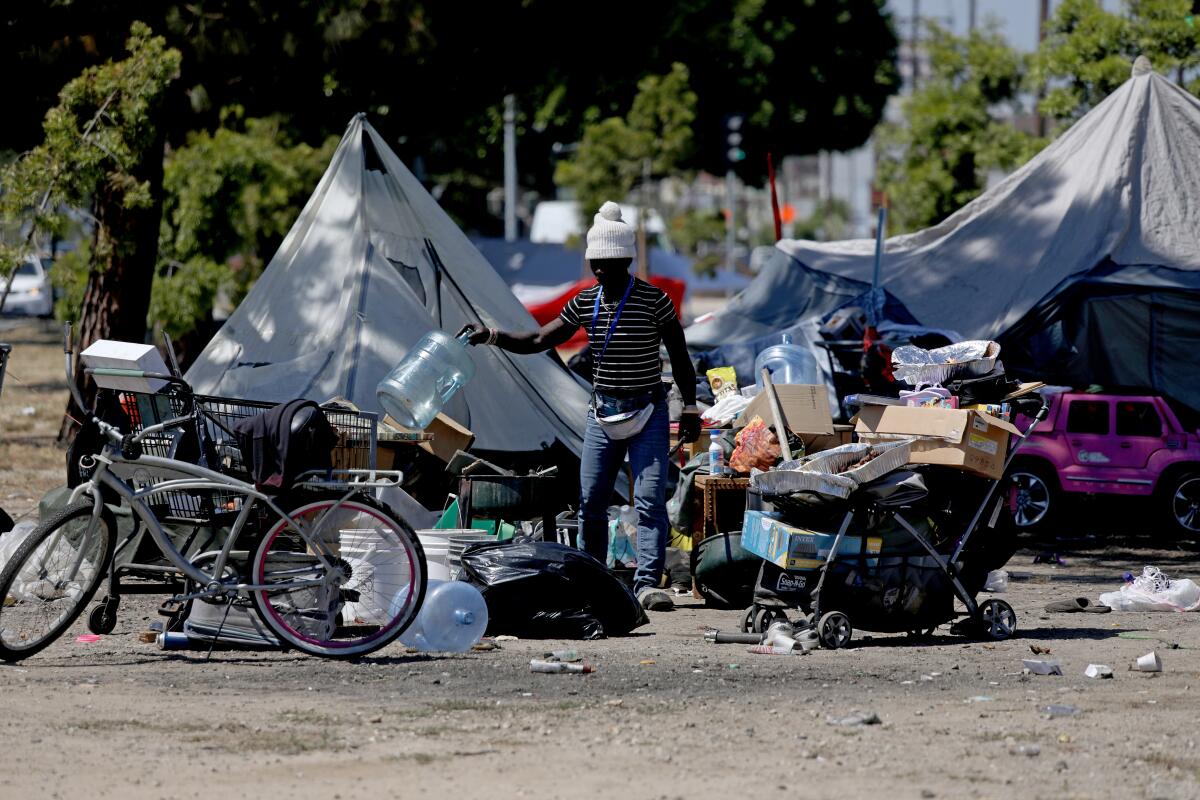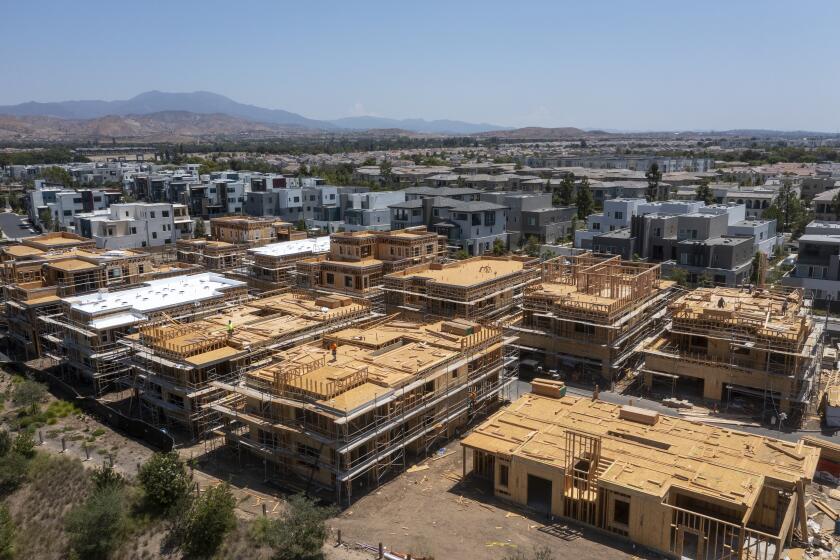L.A. County offers 3,000 new mental health and substance use treatment beds in bid to end lawsuit

- Share via
Facing the prospect of a trial neither side wanted, Los Angeles County and the plaintiffs in a lawsuit seeking more homeless services have proposed a settlement that appears to meet the demands of a federal judge who twice rejected earlier agreements.
In the new proposal, filed in federal court Monday, the county pledges to provide an additional 3,000 beds for mental health and substance use treatment by the end of 2026. The initial attempt to settle last October provided for only 300 additional beds.
Under pressure from U.S. District Judge David O. Carter, the county upped the offer to 1,000 new beds in an addendum submitted in April, but Carter again balked, saying the agreement didn’t go far enough to resolve the homeless crisis.
In past hearings, Carter repeatedly cited a report by former Department of Mental Health head Jonathan Sherin that the county would need 3,000 additional beds to meet the need.
At Carter’s insistence, the new agreement nominates a retired judge as a monitor to ensure compliance, a condition the county had previously resisted.
California is losing population and adding housing units, but housing costs are still sky-high, and experts don’t expect that to change anytime soon.
Carter has scheduled a hearing scheduled Thursday to consider the proposal, potentially ending the 3-year-old case in which the L.A. Alliance for Human Rights, a group of mostly downtown business owners and residents, sued both the city and county alleging that they had failed to alleviate unsafe and inhumane conditions in homeless encampments.
The city reached a settlement in 2022 providing that it would open enough beds over the next five years to accommodate 60% of the city’s unsheltered population in each City Council district based on the results of the 2020 homeless count. City officials estimated they would need to create 14,000 new interim and permanent beds, more than 13,000 of which had already been planned.
In its initial settlement offer, the county agreed to provide supportive services for city-financed interim and permanent housing under the settlement. The county also agreed to increase its mental health outreach by adding 11 new multidisciplinary teams, which include physical and mental health practitioners, bringing the total to 34 and nearly doubling its Homeless Outreach and Mobile Engagement Teams, which focus on severe mental illness, to 10.
After Carter turned that proposal down, the county came back in April with a commitment to create 1,000 new mental health and substance use disorder beds and also to fund 450 new subsidies for board and care homes “frequently utilized by individuals with serious mental illness who are at risk of homelessness.”
It estimated the value of those resources at $850 million.
Carter again balked, and set a November date for the case to go to trial. The county then filed a petition with the 9th Circuit Court of Appeals seeking a writ ordering him to accept the deal and dismiss the case. The appeals court denied the petition.
When lawyers for the county and alliance sought more time to conduct discovery, Carter wouldn’t budge and urged them to be ready for trial or come up with a settlement he could accept.
During a Sept. 18 hearing, they indicated they were close to an agreement. Carter gave them until Monday to finalize it.
The new agreement sets up a schedule with 600 new beds this year, followed by a total of 1,200 by the end of 2024, 1,800 by the end of 2025 and 3,000 by the end of 2026.
“Both sides have worked really hard to put this agreement together and I hope that Judge Carter sees that and gives us his blessing,” said Los Angeles County Supervisor Janice Hahn in a statement. “I would like to put this lawsuit behind us so that we can all focus on the real work which is getting help to the people who need it most.”
More to Read
Sign up for Essential California
The most important California stories and recommendations in your inbox every morning.
You may occasionally receive promotional content from the Los Angeles Times.















